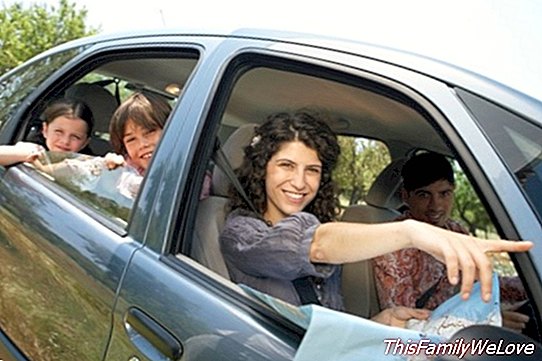Young people with ADHD are more likely to suffer traffic accidents
One of the moments that mark the passage from youth to adulthood is obtaining a driver's license. This permission to travel gives young people autonomy that is not exempt from responsibilities, such as respecting a code of rules to prevent accidents. But there are other elements that can influence the risk of suffering one of these situations.
Not only the consumption of alcohol or drowsiness have effects on driving. Other aspects such as Attention Deficit Hyperactivity Disorder, ADHD, can make the young people who are initiated in the handling of vehicles have an accident. This is what the Injury Prevention and Research Center of the Pediatric Hospital of Philadelphia indicates, which has analyzed the risk factors of the newly initiated in this activity.
Tendency to distract and impulsivity
The Injury Prevention and Research Center at the Children's Hospital of Philadelphia wanted to know more about risk factors in young people when it comes to driving. A mission in which they took into account reviewed the medical records that indicated the status of ADHD of more than 18,500 people born between 1987 and 1997.
These data were related to the statistics of obtaining a driving license and the accidents suffered by them. Of the almost 2,500 young people With ADHD included, almost 43 percent had suffered a car accident during the process in which this study took place. On the contrary, only 36% of drivers without this disorder had suffered any of these risks.
In addition, young people with ADHD present a 35% less likely to pass the driver's license. After acquiring this license, those with this disorder present a risk of approximately 36% higher accident than other novice drivers.
In this sense, Allison Curry, the main author of this study, recommends families to start their children in effective treatments for ADHD before starting in the process of obtaining the driver's license. The tendency to distraction and greater impulsiveness of these young people make them more prone to accidents. In any case, this professional also advises parents to take into account the level of maturity that can also make the difference between suffering an incident or not.

Advice for novice drivers
Not only ADHD can make a young driver more prone to an accident. The inexperience behind the wheel can make these generations more likely to be involved in undesirable situations. For avoid them As far as possible, it will be necessary to follow advice such as the following:
- Trust at the wheel. Fear is a bad car companion, so the young person must gain confidence at the wheel. For this you can let him drive on short trips such as going to the mall. The closeness of his parents will make him feel more secure.
- The safe alcohol rate is zero. There have been many prevention campaigns, but it never hurts to remember that alcohol and the steering wheel do not get along. If the young person, of legal age, plans to drink, it is better to leave the keys of the car at home.
- The mobile away. We live in the age of immediacy, especially young people. It is listening to a mobile phone sound and already wanting to know why this claim is due. Therefore, the less you are at hand, the less impulse you will feel to see this screen. If there is a co-pilot, he or she should be entrusted with the attention of the device in case it is a matter of urgency.
- Attention to other drivers. Many times the danger is not caused by the driver, but by other people on the road. Young people should pay attention to the attitude of other cars and anticipate if any danger of these intentions can arise.
- Reduction of distractions. If the radio is set, better at minimum levels to avoid any startle alter driving. Like the elements on the dashboard that can take the attention of the eyes.
Damián Montero




